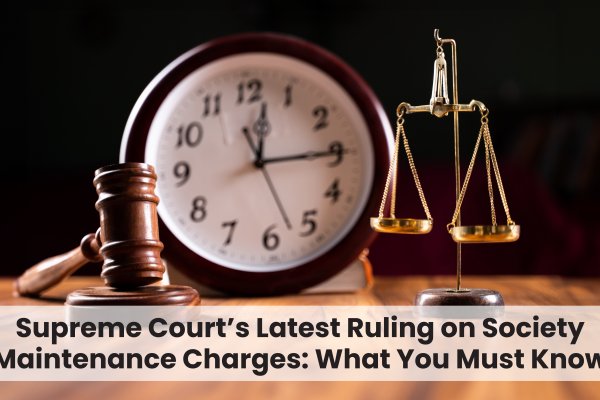Every property purchase should come with peace of mind, not questions about approvals or legal status. One such approval, often misunderstood or overlooked, is the Completion certificate for a building. This certificate serves as proof that the building meets all sanctioned design, safety, and construction standards set by local authorities.
Yet, in Chennai’s fast-moving property market, not all real estate builders are transparent about their status. In this blog, we break down the full form of cc in real estate and why it’s critical to your property ownership right. If you’re planning to buy property soon, this guide is for you.
What is a Completion Certificate and Why Does It Matter?
Let’s begin by understanding what the Completion certificate for building actually means. A Completion Certificate is an official legal document issued by the local municipal authority or planning body once a building is constructed in full compliance with the approved plans and local building regulations.
This document acts as a formal acknowledgement that the building is fit for occupation and that all civic and structural conditions have been met.
A legitimate completion certificate for a building certifies the following:
- The building has been constructed as per the approved floor plan, elevation, and structural design submitted to the authorities.
- The structure is considered safe and habitable for occupancy based on civil engineering and safety norms.
- All essential infrastructure, such as electricity, water supply, sewage, and drainage systems, has been installed as per municipal standards.
- There are no violations such as unauthorised floors, extended balconies, or illegal use of space that would render the construction non-compliant.
Why Should Homebuyers in Chennai Care About Completion Certificate?
The completion certificate of the building is essential not just for record-keeping but also for ensuring your ownership is legally secure. Without a valid building completion certificate, the property remains “technically incomplete” under municipal law, regardless of whether the interiors are ready or the builder offers you the keys. Many statutory services, like property registration and home loan disbursement, may be withheld if the Completion certificate is missing.
Simply put, the Completion certificate in real estate might seem basic, but its absence can signal major legal, financial, and structural red flags for a homebuyer.
Here’s what can go wrong if your builder doesn’t provide the building completion certificate:
- You may face delays in getting electricity or water connections
- Property registration might get rejected
- Resale value can drop due to a lack of legal clarity
- Banks may deny loan disbursement
How to Check If Your Builder Has Obtained the Completion Certificate?
Verifying whether a Completion certificate for building exists is not a complicated process, especially if you know where to look. Here’s how you can check its authenticity and ensure your builder has followed the proper approval procedures:
- Ask the builder directly and request a copy
- Visit the CMDA (Chennai Metropolitan Development Authority) or the local municipal corporation website
- Use the project’s planning permit number to track the building completion certificate status
- If you’re working with a home loan provider, they usually verify this as part of their documentation process.
How to Spot a Missing or Delayed Completion Certificate for Building
Not all real estate builders in Chennai are upfront about documentation, and missing approvals can cost you dearly in the long run. Watch for these red flags that may indicate the completion certificate of the building is not in place:
- Lack of Transparency
If the builder avoids sharing the Completion certificate for the building despite multiple requests, it’s a serious cause for concern.
- Premature Possession
Be cautious if you’re asked to take possession of the flat before the project has received full approval from local authorities.
- Layout Discrepancies
Variations between the approved floor plan and the actual construction may delay or invalidate the issuance of a building completion certificate.
- Only OC Provided
Some builders may furnish an Occupancy Certificate (OC) but not the completion certificate. Remember, these are not interchangeable.
While the OC permits residents to occupy the building, it can only be issued after the local authority has granted the Completion certificate. To avoid legal or financial setbacks, always ensure both documents are complete and part of your home purchase file.
Why Some Builders Delay or Skip Getting the Completion Certificate
Here are some common reasons why a Completion certificate may be delayed:
- Minor or major construction deviations from approved plans
- Pending fees with the local authority
- Incomplete infrastructure within the gated community
- Legal disputes or litigation involving the land
Although some issues may seem minor, they can create lasting complications for the homebuyer. It’s always wise to stay updated on the status of the Completion certificate for the building before booking.
Delivering More Than Homes: Casagrand’s Promise of Trust
As one of the trusted real estate builders in Chennai, Casagrand is committed to delivering homes that meet not only design expectations but also every legal requirement, right from approvals to the final completion certificate. We believe that a homebuyer should never have to worry about missing documents or delayed clearances.
That’s why, before handing over any unit, we ensure that the building completion certificate is fully approved and ready to be shared. At Casagrand, transparency is a part of how we build trust, one home at a time.
A Checklist Before You Say Yes to the Builder
Here’s a quick checklist you can follow:
- Ask for the completion certificate of the building and verify the date of approval.
- Ensure that it matches the final layout and floor plan.
- Confirm OC is issued only after the Completion certificate.
- Do not accept possession without written proof of these documents.
- Involve a legal expert to review all paperwork
Your Peace of Mind Begins with the Right Documents
When it comes to buying a home, clear documentation is just as important as design or location. A valid completion certificate of building ensures that your property is legally approved and ready for occupancy.
Without a proper Completion certificate for building, you may face challenges with registration, resale, or basic utility connections. That’s why it’s important to choose builders who are transparent and committed to full compliance.
Whether you’re a first-time homebuyer or looking to upgrade, always ask the right questions and check for the necessary approvals. Taking this step today can help you avoid complications tomorrow.


















